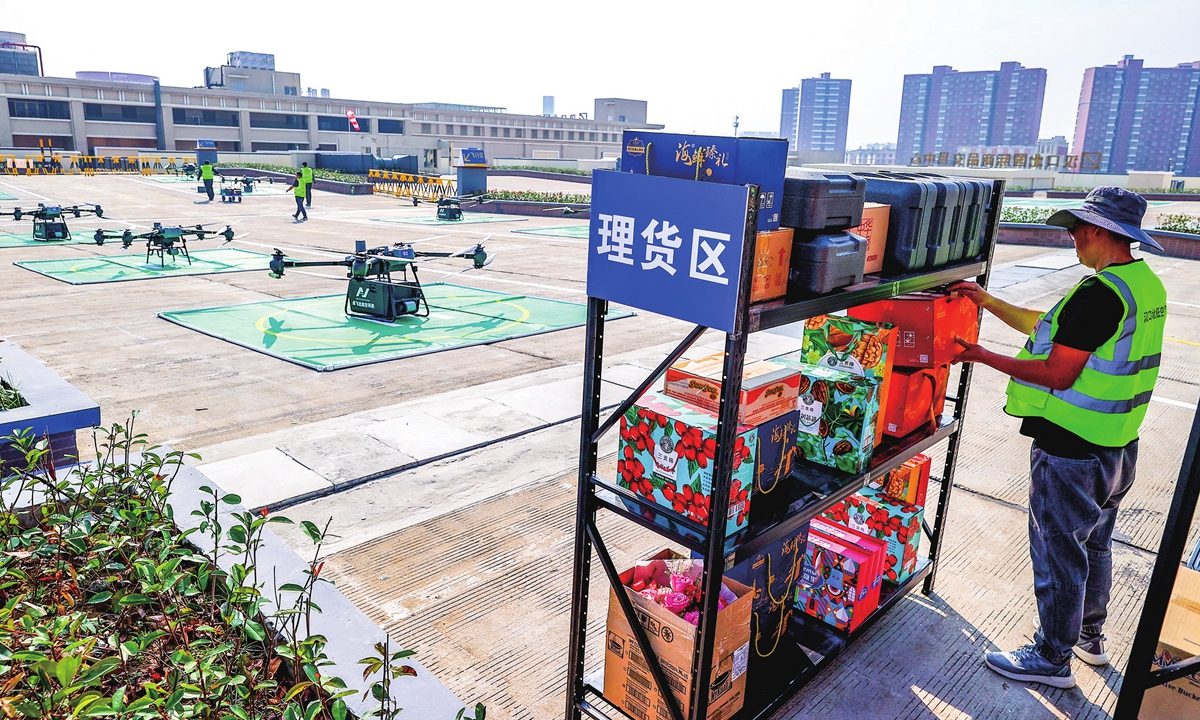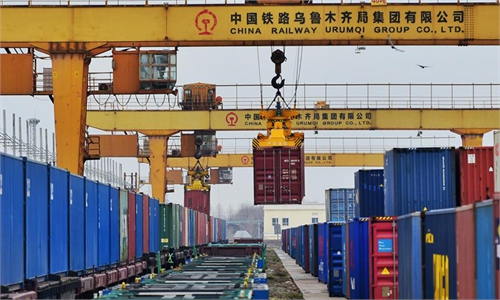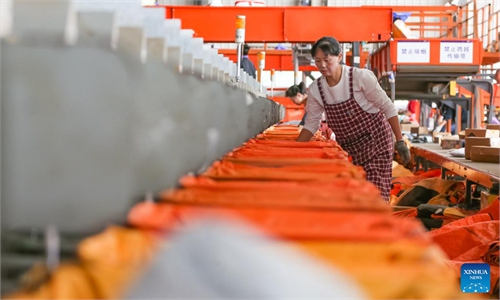China’s logistics sector posts steady revenue growth in first 11 months
80% of courier industries index is in expansion zone

A staff member sorts packages as unmanned aerial vehicles prepare to transport shipments of seafood, flowers and apparel to destinations at the end of five low-altitude flight routes in Wuhan, Central China's Hubei Province on November 12, 2024. Photo: cnsphoto
China's logistics sector posted steady revenue growth in the first 11 months of this year, as overall activity in the sector continues to increase amid improvement in industrial demand, according to data released by the China Federation of Logistics and Purchasing on Sunday.
The industry generated 12.5 trillion yuan ($1.71 trillion) of revenue between January and November, up 4 percent year-on-year, 0.2 percentage points higher than the first 10 months, marking November a third straight month of increase, the federation said.
Thanks to a series of supportive policies, positive factors supporting the high-quality development of China's economy continue to accumulate in November. Meanwhile, the operations of logistics firms have been enhanced, with their financial pressure diminished and market expectations becoming more stable. Fueled by favorable conditions, the quality and efficiency of logistics development in China have consistently improved, leading to a sustained enhancement in operational performance, according to the federation.
Over 80 percent of total logistics business index is in the expansion zone. In November, the average daily loading for national railroads reached 194,000 vehicles, setting a new record following the highest monthly loading in October. Additionally, e-commerce express logistics continues to demonstrate resilient growth. The courier sector handled 17.2 billion parcels last month, up 14.9 percent year-on-year, the data showed.
"Looking ahead, we hope to enhance data connectivity through the internet, including railway, port and customs clearance data, so as to better empower the real economy by leveraging efficiency in the development and utilization of data resources," Zhou Zhicheng, director of the research department at the Beijing-based China Federation of Logistics and Purchasing, told the Global Times on Sunday.
The annual Central Economic Work Conference held in Beijing in early December pointed out that the forging of a unified national market shall be accelerated, and efforts will be made to break down local protectionism and market segmentation, while logistics costs should be effectively lowered, it said.
It is expected that logistics costs across the country will decrease by 300 billion yuan in 2025, providing significant support for the development of the real economy, particularly the manufacturing sector, Vice Minister of Transport Li Yang told a press conference on Friday.
"Transportation is a key component of overall logistics costs… We aim to leverage integrated transportation solutions to facilitate the transition from road to rail and from road to water transport. This approach is expected to significantly reduce costs while enhancing quality and efficiency in the logistics sector," Li said.
Recently, nine government agencies including the Ministry of Commerce released a plan to build a modern commercial circulation system by 2027 that integrates domestic and global markets, bridges urban and rural areas, aligns production with sales and ensures efficient operations.
To ensure timely completion, the country will further improve its logistics and distribution systems covering counties, townships and villages, and accelerate the growth of new business models such as livestream e-commerce, according to the plan.
As a fundamental sector, the logistics industry is closely linked to manufacturing, distribution, trade and consumption as well as the establishment of a new development paradigm, Wei Jigang, a research fellow with the Development Research Center of the State Council, told the Global Times on Sunday.
China has become a large logistics country with international influence after more than 40 years of reform and opening-up. In order to develop into a logistics powerhouse, efforts are needed to build a powerful, intelligent and green national logistics system, forge logistics links with the world, and boost the modernization of the logistics sector, Wei said.



